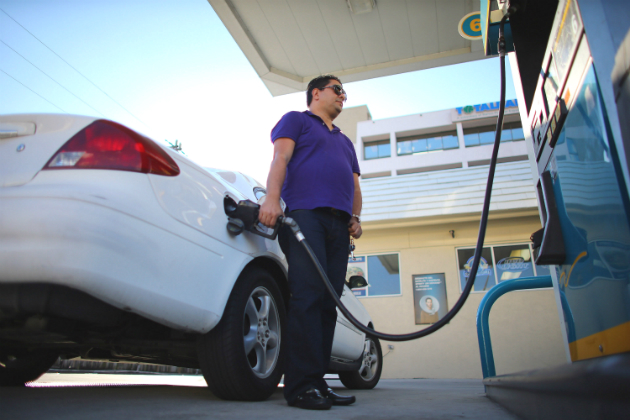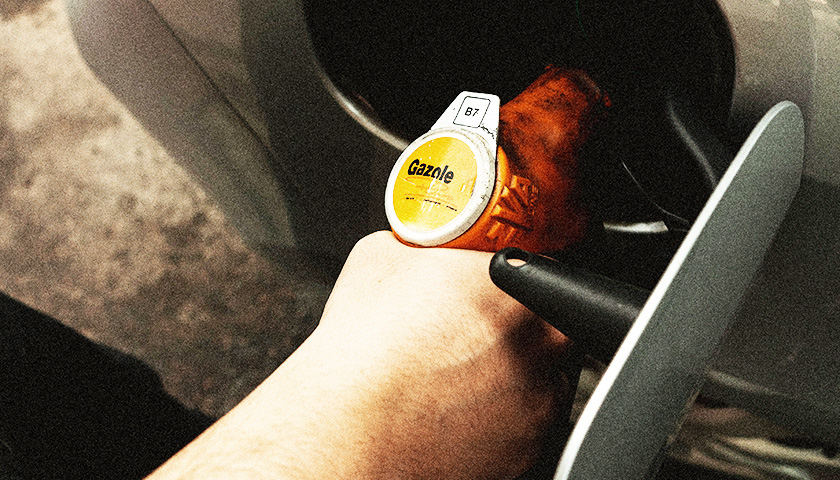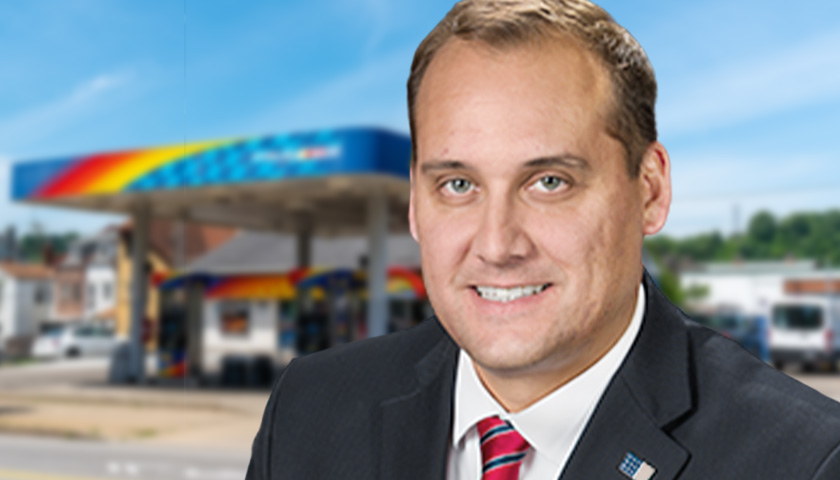After two consecutive losses on the Insure Tennessee front, Governor Haslam designed a better plan for his gas tax increase, packaging it as his IMPROVE (Improving Manufacturing Public Roads and Opportunities for a Vibrant Economy) Act. But, the good planning goes well beyond a name and includes a little help from his friends.
COMPTROLLER’S OFFICES OF RESEARCH AND EDUCATION ACCOUNTABILITY REPORT
The 76-page report, “Tennessee Transportation Funding: Challenges and Options,” was issued in January 2015. As the title implies, the report reviews the current situation and various ways to address transportation funding needs. One thing it doesn’t do is make any recommendations on how to proceed. With even cursory reading, it will be obvious that not all revenue that should go to roads actually does.
nMOTION
The Nashville Metropolitan Transit Authority (MTA) and the Regional Transportation Authority of Middle Tennessee (RTA) set out to develop the nMotion report of a transit implementation plan. The report development process started with “public engagement” from April 2015 through October 2016. Since the pre-determined goal was to develop a comprehensive ten-county mass transit plan, the presentations made by MTA/RTA and TDoT and the surveys obtained from the public were designed to create that end result. For instance, the survey had three proposed scenarios the respondents had to choose from. There were 9,000 survey respondents, which, of the approximately 2 million people in the 10-county region, represents one half of one percent of the population. The make-up of the survey respondents is not known, but the quantity of surveys seems insufficient to enact a 25-year, $6 Billion plan. One thing the public engagement accomplishment was to stir up frustrations about traffic and congestion. Yet the plan has no goals for mass transit participation in terms of what will actually relieve congestion or to have the system’s costs be covered by the users. Ironically, the expectation is for the costs of roads to be covered by the users through the gas tax.
COUNTY RESOLUTION
In April 2016, a prepared Resolution was provided to multiple county commissions to make it look like they had developed it on their own. The Resolution was titled “Support for Enhanced, Sustainable Funding for Transportation Needs for the State of Tennessee and for Local Communities” and it urged the Governor and the Tennessee General Assembly to 1) identify additional ongoing State funding for transportation needs that incorporates a mechanism to keep pace with future inflation; 2) ensure that the Tennessee Department of Transportation continues to have the discretion to select transportation projects working collaboratively with local communities; and, 3) allow for a local option for dedicated revenue to fund local transportation and transit initiatives. The intended audience is the General Assembly, of course, since the Resolution was initiated by the administration for the purpose of arm-twisting the legislature. These Resolutions usually fly under the radar of most citizens, and they would probably be dismayed by their county commission lobbying on their behalf to increase the gas tax and the ability to institute a new local tax.
“REVENUE NEUTRAL”
The Governor’s revenue neutral approach was not part of the initial discussions regarding a gas tax increase. As the Governor’s intention to make a formal proposal about a gas tax increase became public, some legislators commented that the only way they’d consider any tax increase in light of the budget surplus would be to have the increase be offset with a tax decrease, making a revenue neutral situation. While the gas tax increase plan may be called revenue neutral, the neutrality applies only to the state. A gas tax increase won’t be neutral for Tennessee households.
PROJECTS IN ALL 95 COUNTIES
Along with the Governor’s proposal came a 60-page list of 962 Tennessee Department of Transportation projects, promising all 95 counties at least one project for a total of $10 Billion. Along with the list came a commitment to have all projects complete, under construction or under contract by 2030. Ninety-four percent of backlog projects and 56 percent of interstate projects are to be under construction within six years. This commitment is perplexing in that this Governor, and by extension his TDOT Commissioner, has less than two years in office, making it impossible to follow through on a plan that has a 13-year timeline.
LOBBYING COALITION
The Transportation Coalition of Tennessee consists of 32 entities, many of which are self-serving lobbying organizations, including Tennessee Road Builders Association, Tennessee County Highway Officials Association, American Society of Civil Engineers, Concrete Paving Association of Tennessee Nashville Area Chamber of Commerce, Tennessee Concrete Association, Tennessee County Commissioners Association, Tennessee Society of Professional Engineers, Transit Alliance of Middle Tennessee. The Coalition prepared a two-sided four-color brochure that was then distributed to the legislators to explain and promote the gas tax increase. Some of the Coalition’s organizations are funded with taxpayer dollars through their city and county “dues and membership” budget line item.
HEARTSTRINGS
When asked by WWTN’s Ralph Bristol about the budget surplus, Governor Haslam responded that we usually go into a year with about a $400 Million surplus, but we are going into this year with $925 Million, in addition to the surplus from the past several years. He then listed items the funds are already committed to, including increasing teacher and government employee pay and the increasing cost of health insurance. Perhaps having a worthwhile cause will make Tennesseans feel better about continuing to be overtaxed.
LEGISLATIVE COMMITTEE CHAIRS
How proposed legislation works its way through the Tennessee House and Senate Committees either makes or breaks it. Key to the process is the people who chair the Committees. The House and Senate Transportation Committees, which will be the first to review the gas tax increase, saw changes in their respective chairmanships for this upcoming 110th General Assembly. The fifteen House Committees had only three changes to the chairmanships, and two of those were because the chair was no longer a member of the House. The third was the Transportation Committee, which was chaired by Jimmy Matlock (R-District 21). Matlock unsuccessfully opposed Rep. Beth Harwell (R-District 56) as House Speaker. Speaker Harwell assigns the committee chairs and members and not only replaced Matlock as chair, but took him off the Transportation Committee. On the Senate side, there were changes to the chairs of the Finance Ways and Means Committee and Transportation and Safety Committee. The new Senate Transportation Committee chair, Sen. Paul Bailey (R-District 15), at a March 2016 Cookeville event, stated outright that, even though he owns a trucking company, he supported raising the diesel tax at least to make it equal to the gas tax.
The Governor certainly covered a lot of bases in an effort to make his gas tax increase agreeable and convincing. But, with all this effort and expending of political capital, there is one question that still remains unanswered. Why is a gas tax increase the only solution to road funding? With a $1 Billion annually recurring budget surplus and minor redistribution of funds, the same result could be achieved.






Recent reports from COAT estimate the gas tax will produce only an additional $70 million dollars over the next three years. Far short of the $10 billion the claim is needed to fund current infrastructure needs and 1/2 of the $149 million dollar surplus the State had in collections last month alone.
Axe the Gas Tax!
If you don’t know about Gov. Haslam’s family oil business and it’s corrupt business practices, check it out.
http://www.wbir.com/news/local/eight-indicted-in-pilot-flying-j-diesel-fuel-rebate-scam/36500495
Also: https://tennesseestar.com/2017/02/06/haslam-gas-tax-proposal-poses-conflict-of-interest-with-his-familys-pilot-fuel-company/